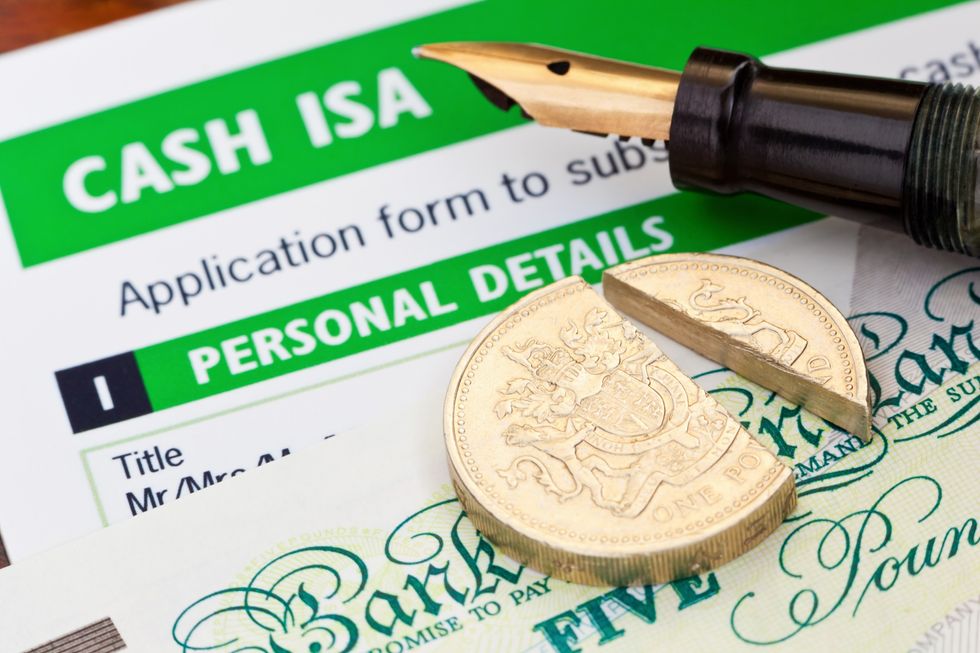Cash ISA savers warned of four major changes on the table as Rachel Reeves plots tax-free savings shake-up

What is a cash ISA? |
GBNEWS

Experts say the Treasury is weighing major reforms to boost saving rates but the changes could also reshape how millions of Britons use Cash ISAs
Don't Miss
Most Read
Latest
Chancellor Rachel Reeves is exploring significant reforms to cash ISAs ahead of the Autumn Budget, with proposals that could fundamentally alter how Britons save their money.
The Treasury is examining various options to redirect funds from cash savings into stock market investments.
These potential changes aim to channel more of the approximately £30billion currently held in cash ISAs towards investments that could stimulate economic growth and deliver improved returns for savers.
The government believes shifting money from cash deposits into equities could help revitalise the UK stock market, which has been struggling with limited investor interest and a shortage of initial public offerings.
The current annual ISA allowance stands at £20,000, which can be split between cash and investment products.
The most prominent proposal involves slashing the cash ISA limit from its current £20,000 threshold.
Reports suggest the Treasury is considering halving this to £10,000, whilst investment bank Peel Hunt has advocated for an even more dramatic reduction to just £5,000.
Rob Morgan, chief investment analyst at Charles Stanley, argues that excessive cash holdings can prove detrimental over time, suggesting that steering funds towards investments could benefit both individual savers and the broader economy.
"Directing more money into stocks and shares ISAs could also be an opportunity to revive interest in the UK stock market, which is suffering from a lack of investor interest and a dearth of IPOs," he said.
 Rachel Reeves urged to rethink the lifetime ISA | GETTY/GBNEWS
Rachel Reeves urged to rethink the lifetime ISA | GETTY/GBNEWSSome experts have proposed more drastic measures, including completely eliminating the cash ISA allowance to drive savers towards investment products.
Michael Healy, UK managing director of investment firm IG, said: "We're calling for the cash ISA to be scrapped altogether, so we can start channeling more tax relief and long-term wealth into reviving the UK stock market."
He calculated that redirecting just one-fifth of the funds deposited into cash ISAs during 2022-23 into stocks and shares ISAs, with half invested in UK equities, could have generated an annual £4 billion boost to British-listed companies.
Another option involves combining cash and stocks and shares ISAs into one unified savings product, which advocates like AJ Bell argue would simplify the system and facilitate the transition from saving to investing.

Another option involves combining cash and stocks and shares ISAs into one unified savings product
| GETTYRather than imposing restrictions, certain industry figures advocate for creating positive incentives to boost stocks and shares ISA usage.
One suggestion involves resurrecting the British ISA scheme, which would grant savers additional allowances specifically for investing in UK-based assets.
Jason Hollands, managing director of Bestinvest by Evelyn Partners, noted: "The Government may find the argument that the tax-incentives provided by ISAs should also require some commitment to back UK assets in return."
Tom Selby, head of public policy at AJ Bell, emphasised that simply reducing cash ISA limits would unlikely achieve the Chancellor's objectives.
He advocates for comprehensive ISA simplification, arguing this would ease the transition from cash saving to long-term investing whilst supporting efforts to enhance retail investment and economic growth.
 ISAs are useful tools for those looking to save more than the personal savings allowance threshold without having to pay tax | GETTY
ISAs are useful tools for those looking to save more than the personal savings allowance threshold without having to pay tax | GETTYIndustry professionals have cautioned that tampering with cash ISA limits could erode consumer trust and produce unintended consequences.
Brian Byrnes, head of personal finance at Moneybox, warned: "While we fully support the Government's ambition to foster a stronger investment culture in the UK, the priority must be to underpin consumer confidence, not to risk undermining it with cuts to cash ISAs."
He challenged the notion that cash savings obstruct investment, stating: "It's a misconception that cash savings are a blocker to investing; they are the enabler. Cash ISAs provide ordinary savers with the peace of mind and financial resilience needed to consider long-term investing."
Building societies have also expressed concerns, warning that alterations could harm savers and potentially increase mortgage costs, as they utilise cash ISA deposits to finance home loans.
More From GB News










